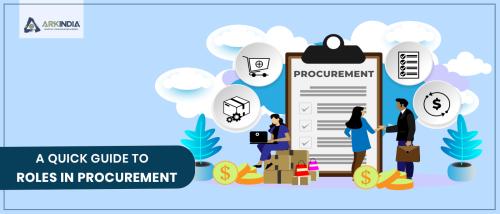
Procurement is a part of the supply chain process that is essential and important to every business. It is defined as the process of sourcing goods or services for a business. Sometimes the term can also refer to the processes leading up to the actual obtaining of services and goods. To procure means to arrange; this is why procurement refers to the activities of the buying company and not the seller. The process usually happens at a large scale, and the process is the beginning of the procuring company making their own product or service.
Depending on the organization or the company, the procurement process flow can be very different or exactly the same. Ideally, the process starts with recognizing a need and then finding a supplier to fulfil it. In case the supplier is already locked in, the order goes to the procurement or finance team, where they either forward it directly upon approval or send it back with the reason for disapproval. When the purchase order is approved, it becomes a purchase requisition.
When a supplier isn't locked in, the procurement team will send an RFQ (Request for Quotation) to many suppliers with details of the order's requirements. After receiving the quotations, the team then analyzes and makes an informed decision to choose a vendor. The procurement team's next job is to negotiate a suitable contract and get to work!
Any typical procurement operation will have a lot of roles and personnel working together to make it happen. These roles are either all or any of the following.
1. Chief Procurement Officer: This person is the leader of the sourcing process. They develop the organization's procurement strategy, identify suppliers that could be compatible, negotiate with them, and lay down short and long term goals for the department. They are the person with the authority to talk to people at the right level.
2. Finance Manager: As the name suggests, this role is responsible for managing the financial ins and outs of the operation. Their roles include making contracts with suppliers, reconciling bank accounts, managing payments of staff and expenses, assisting with an annual budget, financial planning, and tax compliance.
3. Project Procurement Manager: This role is for the day to day handling of things like communicating with suppliers for purchasing commodities, equipment, services, etc. They work in conjuncture with the CPO and overlook their plans.
4. Procurement Analyst: The procurement analyst's job is to interpret the data and ensure the smooth conduct of business. They put in the numbers like price, quality, speed of delivery, and other variables that factor in while working with a supplier. Then they determine the best partner to work with based on this data.
5. Sourcing Team Member: This role is similar to an HR representative. This person has to source team members, check the market for who's available to do the work, and at what price.
6. Supplier Relationship Manager: Once you successfully forge partnerships with suppliers, it is important to maintain those relationships for the benefit of everyone. This role is supposed to manage post-award relationships with suppliers and enhance them. The goal is to develop and promote supply chain activities between a supplier and the company..